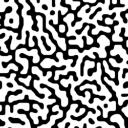Yahoo Answers is shutting down on May 4th, 2021 (Eastern Time) and beginning April 20th, 2021 (Eastern Time) the Yahoo Answers website will be in read-only mode. There will be no changes to other Yahoo properties or services, or your Yahoo account. You can find more information about the Yahoo Answers shutdown and how to download your data on this help page.
Trending News
Can a solid ever actually be transparent?
People consider clear glass, such as windows, to be transparent, but is it really? I thought transparency meant that light completely passes through, without being reflected, but this isn't the case with glass, because, from certain angles, you can kind of see reflections. Am I totally off-base here?
8 Answers
- oldprofLv 75 years ago
Good question. And the answer under normal conditions is no. There is no such thing a 100% transparent.
You can go on to the web and check out the refraction indexes n of just about any material you want. You'll find that n = C/c > 1.000 for them all.
That means the average speed of light through them, c, is always less than the speed of light through a vacuum. And that's because at least some of those photons are colliding and coupling with the electrons of that material. And chances are that at least some of those coupled photons will stay with those atoms and heat up the material a bit.
In other words, the number of existing photons will be a bit less than the incident ones. And that's not 100% transparency.
- Bob BLv 75 years ago
There is no such thing as a completely 100% transparent material; anything made of atoms is going to have at least some interaction with light passing through it, so there is always going to be at least some level of reflection or absorption of light going through the material- even air has some effect on light passing through it.
The transparency of some materials is of course, very high, but it is never 100%; as long as there is any interaction between the light and the material (and if it's made of atoms, there will be), it's not completely transparent. Even outer space still has a few atoms and molecules floating around in it, and these effects can be detected.
Of course, it does also depend on how pedantic you are with the definitions as well. For instance, a common definition of transparent for practical purposes is that one can clearly see objects through the material. Translucent is when light can pass through but a clear image can't be formed, and opaque is when light cannot pass through at all.
If you use that definition of transparent, then there are plenty of transparent materials around, and for practical purposes, this is a more useful definition, because of obviously whether or not you can see objects clearly through a material tends to be of practical significance.
But no, there is no material that is 100% transparent. Again, from a practical standpoint, what we normally do is measure how transparent a material actually is, which usually depends on the wavelength of light passing through it.
As a side-joke, a physicist would probably answer that you can't have a transparent material, whereas an engineer would probably answer that you can!
- ?Lv 75 years ago
Different solids are more or less transparent to different wave lengths - there are materials that pass IR or UV but not light.
Reflections don't count because those are surface effects - start the light at the medium to test transparency - the glass in fiber optics is nearly perfect.
- electron1Lv 75 years ago
As I look out my kitchen window, I can see everything that is in the backyard. This proves that glass is that glass is transparent. If you go the website below, you will see various definitions of this word. None of definitions mention that light might be reflected or refracted as it passes through it.
http://www.merriam-webster.com/dictionary/transpar...
The fact that glass can reflect at light in some situations does not mean that you can’t see through in other situations. If you look through a prism, the object will appear to be in different position than if you look straight at it. This is due to refraction. But the fact that you can see the object means the prism is transparent. This is my opinion on this subject. I know that nothing is 100% transparent. But this does affect the fact that you can see through it.
- How do you think about the answers? You can sign in to vote the answer.
- Anonymous5 years ago
Yes it can. You're confusing invisibility with transparency.
- PhukyahuLv 65 years ago
You're overthinking it. Clear glass is transparent. If glass is such that it distorts the light passing through it's translucent.





